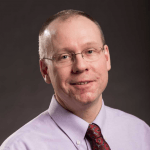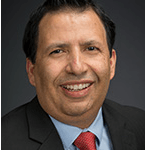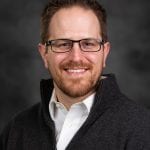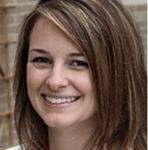 |
Nidal Abu-Zahra
UWM Associate Professor
Department Chair, Materials Science and Engineering
Dr. Abu-Zahra’s multi-disciplinary education and training spans mechanical, manufacturing, industrial, and materials engineering with emphases on the design and validation of materials and processes with new properties and applications. His work on reducing overall manufacturing costs includes several key industry projects, with focus on addressing materials and process wastes concurrently to optimize the materials composition and processing conditions, with consideration for the equipment and people constraints in the manufacturing environment. A true believer in partnership between academia and industry, Dr. Abu-Zahra has conducted a diverse array of industry and research projects, ranging from metal turning and drilling operations to plastics extrusion and injection molding, materials for water filtration and purification, structural plastics, and polymer solar cells, by leveraging the diverse academic backgrounds of his PhD students, whose areas of study include chemistry, physics, mechanical, industrial, chemical, and polymer engineering. His methodology of embedding his graduate students within the company teams and implementing standard industry practices in managing his projects and researchers has resulted in many success stories for his industry partners and for his graduate students. |
 |
Jian Chen
UWM Associate Professor, Organic Chemistry and Nano Materials
Dr. Chen’s research is focused on bio-inspired smart materials systems and nanoscale materials. 3D shaping allows rational tailoring of the properties and functions of materials. His group has developed a reprogrammable 3D chemical shaping strategy, without physical molds or templates, for complex 3D shapes. In addition, Dr. Chen is interested in integrating multiple functions into a single material system. His group has developed a variety of multifunctional material systems such as remotely-controlled soft robots, smart sensors, and smart windows. Dr. Chen’s group has also developed a new method for in situ chemical probing of vacancy defects in CVD-grown graphene at room temperature, which provides new insightful information on defect formation and healing in graphene. |
 |
Ben Church
UWM Associate Professor, Materials Science and Engineering
Director of UWM Advanced Analysis Facility
ASM Milwaukee Board Member
Dr. Church joined the UWM faculty after working for Modine Manufacturing in Racine, WI, as a technical advisor in the metallurgical lab. His real-world experience brings energy to his research interests. He is currently working on high-temperature corrosion of materials used in petrochemical processing applications, with a focus on oxidation in steam and resistance to coking and carbon attack. This project is in collaboration with Oak Ridge National Laboratory, Duraloy, and MetalTek International and aims to develop cast alumina-forming austenitic stainless steels for this and other applications. |
 |
Joseph Domblesky
Marquette University Faculty Member
Dr. Domblesky has been at Marquette University in Milwaukee, WI since 1996 and is a faculty member in the Mechanical Engineering Department where he teaches manufacturing processes and materials science. His research interests include computational welding, surface engineering (particularly MAO), metal casting, and forming processes. Dr. Domblesky also teaches a workshop in die stress analysis for the cold and hot forming industries in collaboration with Scientific Forming Technologies Corp and was an instructor for the metal forming fundamentals session in the FIA Die School. Prior to becoming a faculty member at Marquette University, he held positions at General Motors and MSW Inc. as a manufacturing engineer and tool room supervisor. Dr. Domblesky has received B.S. and M.S. degrees from the Pennsylvania State University and a Ph.D. in Metal Forming from Ohio State University. |
 ![]() |
Hom Kandel
UW-Parkside Assistant Professor, Mathematics and Physics
Dr. Kandel’s research background lies at the intersection of Applied Physics and Materials Science & Engineering with strong emphasis on the development (bulk and thin film synthesis and characterization studies) of novel electrical insulator materials for application in high critical temperature superconductor based Josephson junctions, next generation NMR/MRI superconducting magnets with very high magnetic fields, and synthesis and processing of high efficiency and low cost solar cells. Currently, Dr. Kandel is pursuing his research work to lead the advancements in developing and studying the electrical, optical, and magnetic properties of these novel electronic materials. |
 |
Nikolai Kouklin
UWM Professor, Electrical Engineering
With focus on improving the performance of nano-electronic materials and their based devices for sensing, communication and energy harvesting applications, Dr. Kouklin works with the UWM Mechanical, Materials and Physics departments to expand the horizons in the areas of nano-biotechnologies, biomedical devices and sensors. |
 ![]() |
Chiu Tai Law
UWM Associate Professor, Electrical Engineering
Dr. Law received his PhD in Electrical Engineering from Purdue University. His areas of research interest include magnetostrictive composites and sensors, optical sensor and sensor network, optical communication, nonlinear optics, optical wave propagation and optical sensor protection. His research was funded by various agencies including Wisconsin Energy Research Consortium, U.S. Department of Defense and U.S. National Science Foundation (NSF). He recently set up the smart composites and sensors laboratory in collaboration with Dr. El-Hajjar with focus on the fabrication and design of magnetostrictive devices. In particular, his device research places emphasis on investigating electric current sensors for power grid protection and stress sensors for early prognosis. His material research is concentrated on the use of environmental friendly composites (cellulose nanofibers) and advanced techniques (3D printing processes) for device fabrication. Honors include NSF’s CAREER award and Outstanding Research Award from the College of Engineering & Applied Science. |
 |
Xiaoli Ma
UWM Assistant Professor, Materials Science and Engineering
Xiaoli Ma joined UWM after his postdoctoral work at University of Minnesota in the Department of Chemical Engineering & Materials Science. He obtained his PhD in Materials Science and Engineering at Arizona State University. His current research focuses on the design and development of advanced materials for separation, purification and sensing technologies. His group is mostly interested in polymers, porous materials (metal-organic frameworks, zeolites, carbons, mesoporous materials, etc) and their nanocomposites. They seek to develop robust sorbents, membranes and sensors by combining synthetic chemistry, materials processing with device design and fabrication.
His group is particularly interested in developing scalable and cost-effective materials processing methods that can be incorporated into the manufacturing of high performance membranes. These membranes are used for water purification, solvent dehydration, organic solvent nanofiltration, purification of dairy ingredients, gas separation and other challenging separation processes. The innovative processing methods developed in his group can also be used for coating and thin film applications. |
 |
Joseph E. Mondloch
UW-Stevens Point Assistant Professor, Chemistry
Dr. Mondloch is an Assistant Professor in the Department of Chemistry at the University of Wisconsin-Stevens Point. He received his Ph.D. in inorganic and materials chemistry from Colorado State University and was a DOE-EERE postdoctoral fellow at Northwestern University. Our research group designs porous solid-state materials for functional applications such as chemical catalysis and separations. |
 |
Junjie Niu
UWM Assistant Professor, Materials Science and Engineering
Associate Editor RSC Advances, a publication of the Royal Society of Chemistry
Dr. Junjie Niu is an Assistant Professor in Department of Material Science and Engineering at University of Wisconsin-Milwaukee. He received Ph.D. in Materials Science from Zhejiang University. Before joining in UWM, Dr. Niu worked as a Postdoc Associate at the Massachusetts Institute of Technology (MIT) from 2011 to 2014. He also did interdisciplinary research as a Postdoc Associate at the Drexel University and the University of Pennsylvania (UPenn) from 2009 to 2011. Dr. Niu’s interdisciplinary research includes understanding fundamental science in physics/chemistry/mechanics, and engineering materials in applications of energy storage and water-energy nexus. In particular, lithium-based batteries, advanced lead-acid battery, self-cleaning, water purification and air purification. Dr. Niu has published over 70 papers in peer-reviewed journals including 3 Nature series journals with a total citation 4900+ and h-index of 33 and filed over 5 US patents. |
 ![]() |
William Parker
UW-Parkside Faculty Member, Mathematics and Physics
My research focuses on developing and applying theoretical and computational electronic structure methods to emerging materials in order to discover compositions and structures with exceptional properties. Correct simulation deepens insight into the quantum physics of electrons, and a broadened range of electron simulations continues progress toward the dream of true ab initio prediction: at any range of conditions from a chemical reaction on a surface to the high-density, high-temperature interior of a planet, using the same method to calculate any relevant property of a never-before-realized material. |
 |
Shannon C. Riha
UW-Stevens Point Assistant Professor, Chemistry
Shannon C. Riha joined the Chemistry department at the UW-Stevens Point as an adjunct professor and later became an assistant professor. Shannon’s education includes a B.A. in Chemistry from Lakeland College (now Lakeland University), a Ph.D. in Analytical and Materials Chemistry from Colorado State University. Before joining the chemistry department at UW-Stevens Point, she was a DOE-EERE postdoctoral research fellow at Argonne National Laboratory. Her research interests and areas of expertise include the synthesis and characterization of earth-abundant materials for solar energy conversion and energy storage applications. |
 |
Pradeep Rohatgi
UWM Distinguished Professor, Materials Science and Engineering
Also joint Professor in Mechanical Engineering and Biomedical Engineering
Director of UWM Centers for (i) Composites, and (ii) Advanced Materials Manufacture
Areas of expertise include: metal matrix composites, materials processing including casting, lightweight materials, low energy embodied materials, high performance structured materials including aluminum alloys and steels, smart materials: self-healing, self-lubricating, and self-cleaning, and bio-derived and biomedical materials and materials policy.Dr. Rohatgi’s research has been supported by the National Science Foundation, U.S. Department of Energy, Office of Naval Research, Tank and Automotive Command, Army Research Laboratory, Electric Power Research Institute, United Nations and several major corporations including Ford, General Motors, GE Medical, Oshkosh Truck, Rockwell Automation, A.O.Smith, Sunstrand, and Briggs and Stratton. Dr. Rohatgi has 360 Reference Journal Papers, 20 US. Patents, twelve authored and co-educated books, and has received numerous awards for excellence in research, including election to Fellowships of National Academy of inventors, Materials Research Society, The Minerals, Metals & Materials Society (TMS), ASM International Society of Manufacturing Engineers (SME), and SAE International. |
 |
Nathan Salowitz
UWM Assistant Professor, Mechanical Engineering
UWM Affiliate Professor, Electrical and Civil Engineering
Dr. Salowitz worked as a structural analyst with Boeing for several years before pursuing graduate studies. He received his PhD and worked as an Engineering Research Associate at in the Structures and Composites Laboratory at Stanford University. He is pursuing ongoing research into intelligent multifunctional materials capable of detecting, reporting, and responding to their state. His research spans individual sensors, actuators and composite structural systems with integrated StructuralHealth Monitoring (SHM) capabilities. |
 |
Benjamin F. Schultz
UWM Research Associate, Materials Science and Engineering
Dr. Schultz has expertise in the design, processing, testing and characterization of high-performance and lightweight hybrid and composite materials. These include metal alloys, composite materials, foams, nanocomposites, self-lubricating and other tribomaterials, biomaterials, and materials for additive manufacturing. He has published over 40 peer reviewed articles on the topic of advanced materials and manufacturing and he has presented his work to a broad audience including conference attendees (The Minerals, Metals & Materials Society, ASM International, American Foundry Society, Materials Science & Technology, Institute for Defense and Government Advancement), industry professionals, and students ranging in preparation from elementary to graduate school. His current research is on bio-resorbable magnesium alloy foam biomaterials produced using additive manufacturing and casting processes. His work has been funded by the National Science Foundation, the UWM Research Foundation and the Department of Defense. |
 |
Lei Wang
UWM Assistant Professor, Mathematical Sciences
Dr. Wang joined the UWM faculty after working as a postdoctoral researcher at Mathematics and Computer Science Division at Argonne National Lab. Her research area is Applied Mathematics with an emphasis on cross-disciplinary applications, especially for applications in materials science, geophysical science, fluid dynamics, statistics, and machine learning.
Her experience in materials science includes phase filed modeling for the simulation of heterogeneous materials. |